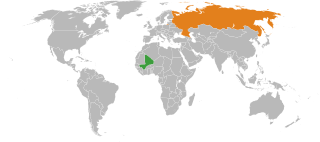See also
| This disambiguation page lists articles associated with the title Ministry of Cultural Affairs. If an internal link led you here, you may wish to change the link to point directly to the intended article. |
Ministry of Cultural Affairs can refer to:
| This disambiguation page lists articles associated with the title Ministry of Cultural Affairs. If an internal link led you here, you may wish to change the link to point directly to the intended article. |
The Ministry of Culture and Sports is the government department of Greece entrusted with preserving the country's cultural heritage, promoting the arts, and overseeing sport through the subordinate General Secretariat for Sports. The incumbent minister is Lina Mendoni. The Deputy Minister for Sports is Lefteris Avgenakis.
A culture minister is a Cabinet position in governments. The culture minister is typically responsible for cultural policy, which often includes arts policy and measures to protect the national heritage of a country and cultural expression of a country or subnational region. This responsibility usually manifests in the accompanying ministry, governing the following:

The Ministry of Culture is the ministry of the Republic of China (Taiwan) that promotes cultural and creative industries. The ministry also maintains the National Repository of Cultural Heritage.

The Ministry of Culture is the ministry of the Government of France in charge of national museums and the monuments historiques. Its goal is to maintain the French identity through the promotion and protection of the arts on national soil and abroad. Its budget is mainly dedicated to the management of the Archives Nationales and the regional Maisons de la culture.

The Ministry of Culture of Egypt is a ministry responsible for maintaining and promoting the culture of Egypt. The current minister is Ines Abdel-Dayem, former chairperson of the Cairo Opera and one of six women in the Egyptian Cabinet.

The Ministry of Foreign Affairs of the People's Republic of China is the first-ranked executive department of the State Council of the Government of the People's Republic of China, responsible for the foreign relations of the People's Republic of China. The ministry is led by the Foreign Minister, currently State Councilor Wang Yi. The agency has its headquarters in Chaoyang District, Beijing.

The European Union National Institutes for Culture (EUNIC) is a network of European national institutes of culture and national bodies engaged in cultural and related activities beyond their national borders. EUNIC brings together organisations from all 27 EU member states and adds value through its global network of clusters. By pooling together the resources and expertise of its members and carrying out joint work on common areas of interest, EUNIC is a recognized partner of the EU and its stakeholders in defining and implementing European policy on culture inside and outside the EU.

The Ministry of Foreign Affairs is a cabinet level policy-making body, governed under the Executive Yuan of the Republic of China (Taiwan). The fundamental purpose of the ministry is to promote, expand, and conduct bilateral foreign affairs with other nations. It is in charge of interactions between the Republic of China and foreign countries except the People's Republic of China, which falls under the jurisdiction of the Mainland Affairs Council. The current Foreign Minister is Joseph Wu.
The Royal Norwegian Ministry of Culture is responsible for cultural policy, regulations and other matters related to the media and sports. The ministry was established in 1982, at which time it was called the Ministry of Cultural and Scientific Affairs. Until then, the Ministry of Church and Education had had the overriding responsibility for cultural affairs in Norway. It is led by Trine Skei Grande (Liberal). The ministry reports to the Storting.
A Ministry of Home Affairs is a common type of government department that serves as an interior ministry.

The Ministry for Culture and Heritage Te Manatū Taonga (MCH) is the public-service department of the New Zealand government charged with advising the government on policies and issues involving the arts, culture, built heritage, sport and recreation, and broadcasting sectors, and participating in functions that advance or promote those sectors.

Mali–Russia relations is the bilateral relationship between Mali and Russia.

The Israeli Ministry of Foreign Affairs is one of the most important ministries in the Israeli government. The ministry's role is to implement Israel's foreign policy, and promote economic, cultural, and scientific relations with other countries.

The Ministry of Foreign Affairs, abbreviated KLN, is a ministry of the Government of Malaysia that is responsible for foreign affairs, Malaysian diaspora, foreigners in Malaysia, diplomacy, foreign relations, counter terrorism, bilateral affairs, multilateral affairs, ASEAN, international protocol, consular services, maritime affairs, chemical weapons. The current ministry is based in Putrajaya. The Ministry of Foreign Affairs Malaysia is also widely known as Wisma Putra, which is also the name of its building in Putrajaya.

The Ministry of Foreign Affairs of the Arab Republic of Egypt is the Egyptian government ministry which oversees the foreign relations of Egypt. On 17 July 2014 Sameh Shoukry was appointed Minister of Foreign Affairs.

The Ministry of Foreign Affairs and International Cooperation is the foreign ministry of the government of the Republic of Italy. It is also known as the Farnesina as a metonym from its headquarters, the Palazzo della Farnesina in Rome. The current Minister of Foreign Affairs is Luigi Di Maio.
The Bhutanese Ministry of Home and Cultural Affairs is the government ministry within the Lhengye Zhungtshog which oversees law and order; the civil administration; immigration services; the issuance of citizenship documents, and other related documents; the delivery of services by local governments; and the preservation, promotion, development, and protection of the culture and heritage of Bhutan. It is headed by the Home Minister, who sits on the Lhengye Zhungtshog and is led by the Prime Minister. The Ministry currently operates from Tashichho Dzong.

The Ministry of Cultural Affairs is a ministry of the Government of People's Republic of Bangladesh, in charge of national museums and monuments; promoting and protecting the arts in Bangladesh and managing the national archives. The Ministry of Cultural Affairs is also charged with maintaining the Bengali identity.

The Ministry of Religious Affairs and Culture administers the religious affairs, cultural affairs and historical and archaeology research efforts of Myanmar. The Department of Religious Affairs purification, perpetuation, promotion and propagation of the Theravada Buddhist Sasana and promotes Myanmar traditional customs and culture.